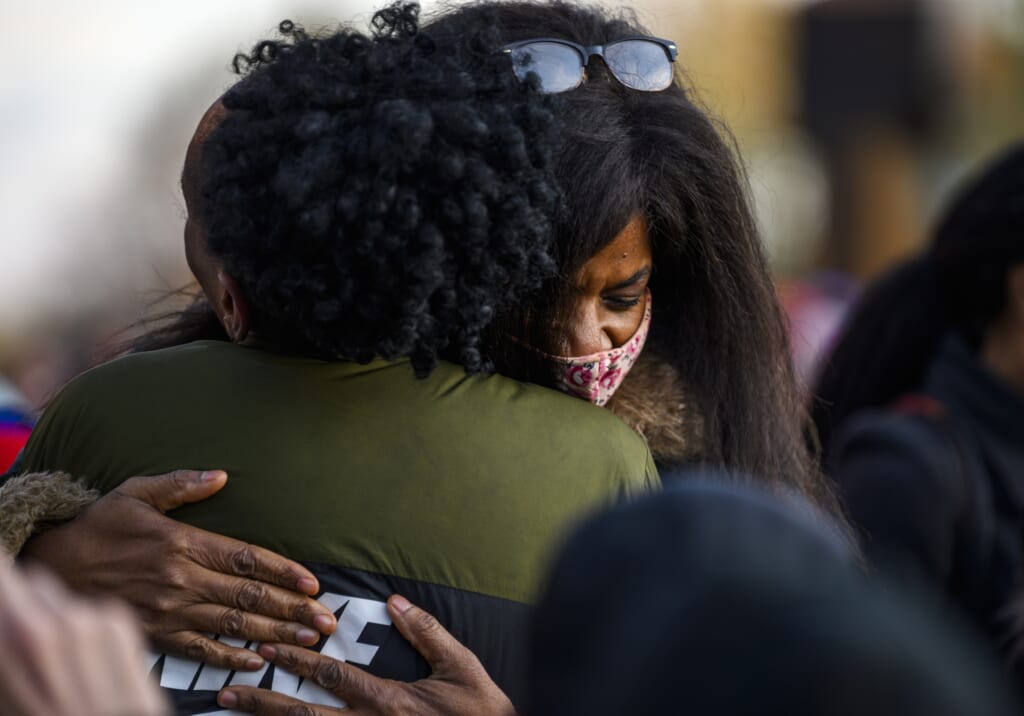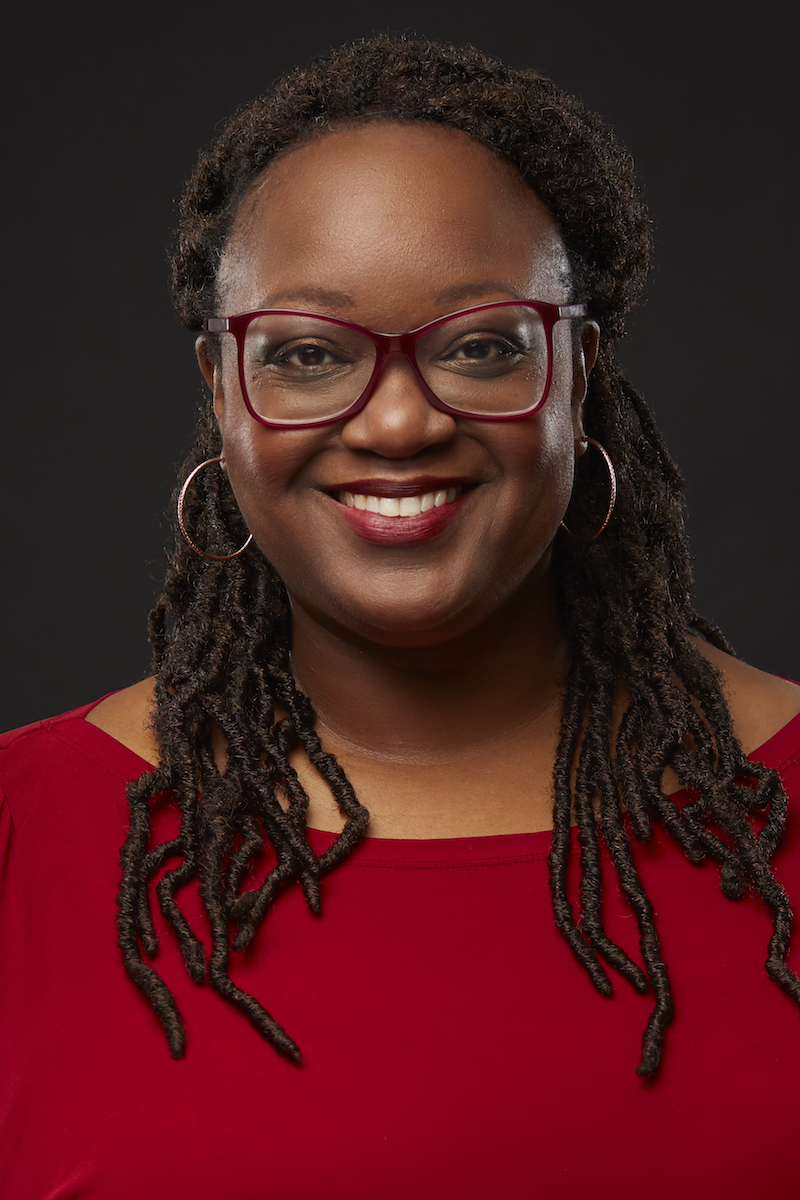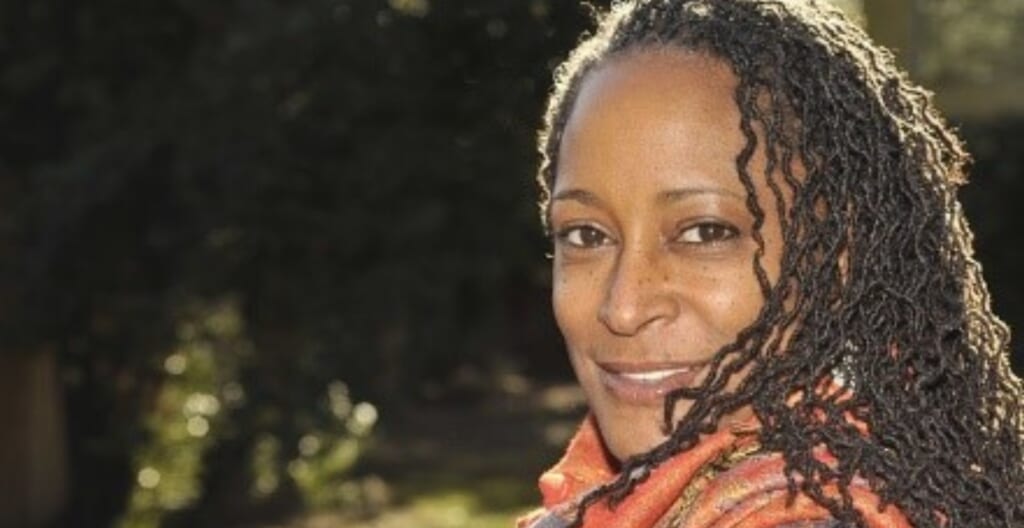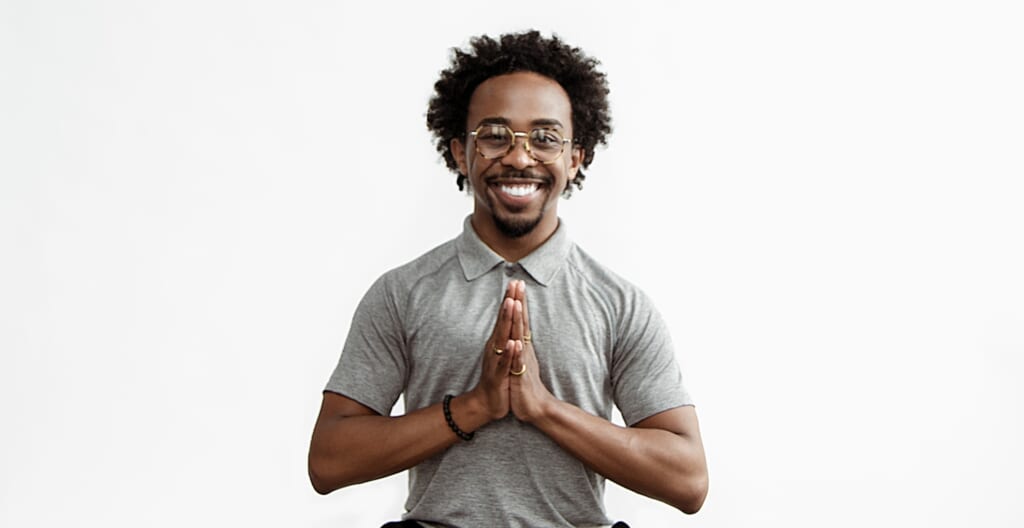Black mental health needs to be acknowledged in Chauvin guilty aftermath
“I would say first that we need to acknowledge the complexities about our feelings and be open about the fact that they are so complex," Dr. Ariane Thomas said.
A long exhale was released by many in the Black community as former Minneapolis Derek Chauvin was found guilty of murdering George Floyd. We’d been holding our collective breaths, unsure that justice would be served.
There was no calming sense as the country awaited the jury’s decision on Tuesday which was on display as the National Guard was deployed in Minneapolis. A guttural pit in the stomach, built over years of justice being denied to victims of police brutality such as Eric Garner, Breonna Taylor, and Michael Brown; tension coursed through the veins until the sweeping convictions were announced.

Read More: Derek Chauvin found guilty on all charges in the murder of George Floyd
An adrenaline rush of feelings took over the already overwhelmed nervous system of emotions running high. There was relief that Chauvin was found guilty of second-degree murder, third-degree murder, and second-degree manslaughter in Floyd’s death. Spontaneous joy erupted in the streets as many celebrated, which segued into sadness because Floyd’s life was still taken. Frustration is also another feeling because Chauvin’s conviction is the exception.
We’re also just tired–physically, emotionally, mentally, and spiritually.
Dr. Ariane Thomas, a licensed clinical psychologist who works at Penn GSE as a counseling lecturer, told theGrio all of these feelings were normal, stressing they needed to be “honored.”
“I would say first that we need to acknowledge the complexities about our feelings and be open about the fact that they are so complex. I think people sometimes see these events that happen in history and we all experience them together and we expect them to be maybe even hope there to be some major change like the next day and we know that’s not real,” Thomas said.

Thomas added that it was vital for Black and Brown people to make space to express these emotions. She wants the community “to talk about the hope, the fears, the continued concerns, the worry the energy about making change will subside, the continued frustration that we are having another Civil Rights movement when we already did this.”
Floyd’s death being played on loop since his murder has also been trauma-inducing.
“That’s not what you see you on the evening news. You may hear the stories on the news but you don’t see that level of a graphic video. You don’t see that quality of detail. You don’t watch a man breathe his last breaths. We have all been exposed to something, a collective trauma that affects everyone who witnesses it but without question affects Black folks differently,” Thomas declared.
“When we’re watching someone who could’ve been our uncle, our cousin, our brother, our husband, our child take his last breath under the knee of a white man, there is nothing I can conceive of…more trauma-inducing.”

Dr. Kristee Haggins, President and one of the founders of Safe Black Safe, also echoed the sentiment to acknowledge the feelings of racism, stress, and trauma. She encouraged practicing self-care and love.
“Really engaging in Black self-love. We get so many messages about how we are not human or we’re viewed in certain ways that are very negative and impact our lives. We’re being taken out by police violence and other measures and being able to really connect with each other.
There’s a Kikongo word called ‘Zola’ and it means to love. So Zola up on each other rather than to buy into the messaging, the ways we’ve been taught to stay disconnected from each other,” Dr. Haggins told theGrio.
Read More: Justice and accountability were served in the Chauvin case — now what?
It’s a never-ending cycle in which self-care is not only needed but necessary. We need to check in with each other, hop on a call or Zoom and ask, “Are you good?” The question needs to be answered honestly. Thomas suggested looking and even creating spaces if there are none readily available.

Eric Mosley, a registered yoga and meditation teacher and educator, curates such a space with his Black Mat Yoga. He launched Black Mat Yoga last year to create an environment that prioritizes addressing inequality in wellness.
Mosley told theGrio he wanted each person to show up to their mats as their most authentic selves.
“We’re always gonna have a soulful R&B type playlist to practice with. We’re gonna start with a check-in so we can bring how we are arriving into a space and acknowledge one for ourselves and also be in community with other people who are feeling similarly, especially in this time of COVID, racial injustice, social injustice.”
Mosley noted that the stress of these situations also impacted one’s physical wellbeing.
“What we experience emotionally, what we experience mentally, the stress that we carry especially as people of color manifest in our bodies.”
Mosley shared that one of his clients contacted him in preparation for the Chauvin verdict. The relief was short-lived as news broke that a Columbus police officer shot 16-year-old Ma’Khia Bryant.
“[It’s] the constant yo/yo; that both/and that we experience all the time like being relieved and grateful that accountability is happening in a way that we haven’t seen but not being able to focus on it for a moment before the next tragedy comes.”
The list below contains some organizations for those who are seeking mental health wellness services.
Black Mat Yoga is based in New York and offers a space for “connection, authenticity, and community.”
Therapy for Black Girls is an online space that dedicates itself “to encouraging the mental wellness of Black women and girls.”
Shawn J. Moore is a registered yoga instructor who “provides training in leadership and strengths-based development, and workshops in mindfulness and meditation.”
Safe Black Space centers on healing and emotional emancipation which provides “the umbrella under which various services are offered to address people of African ancestry’s individual and community reactions to cultural and racial trauma.”
Black Emotional and Mental Health (BEAM) holds its value in creating room for “effective emotional health systems affirm the value of all Black lives” and dismantling institutions that dehumanize Black America.
Hearts In Mind Counseling has diverse clinicians who “have a multitude of trainings in specialty areas to meet your mental health needs.”
Have you subscribed to theGrio’s podcast “Dear Culture”? Download our newest episodes now!
TheGrio is now on Apple TV, Amazon Fire, and Roku. Download theGrio today!
